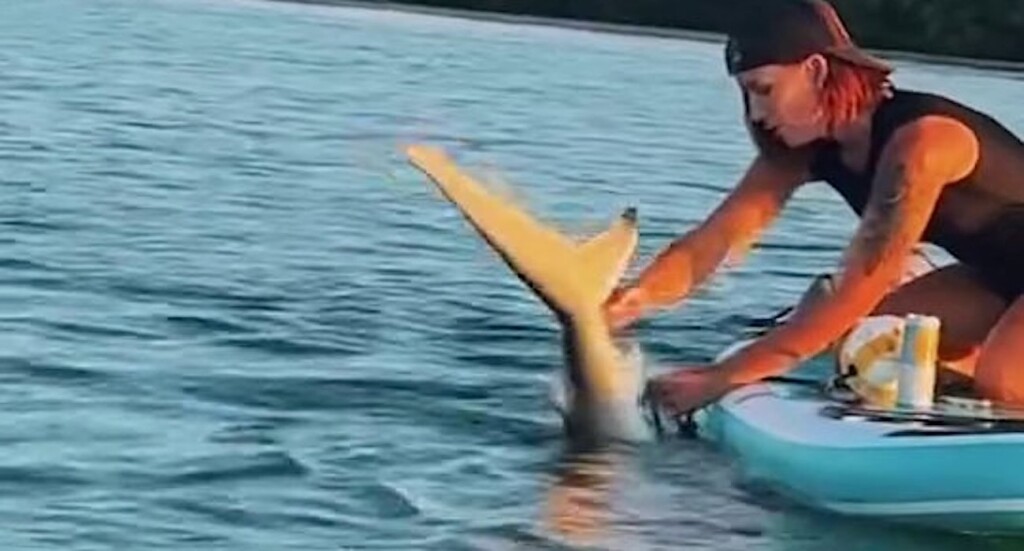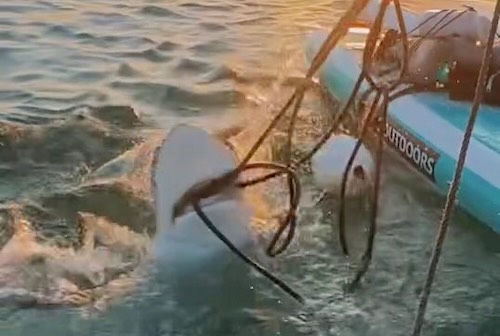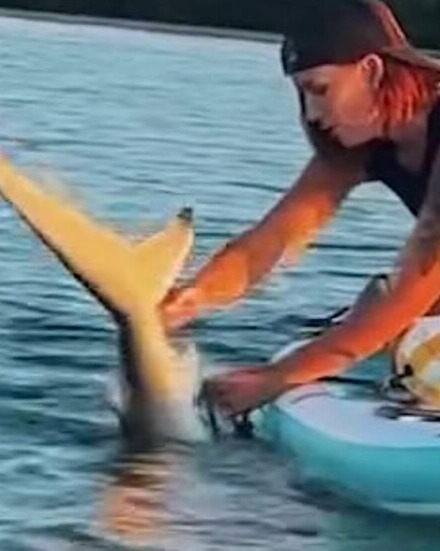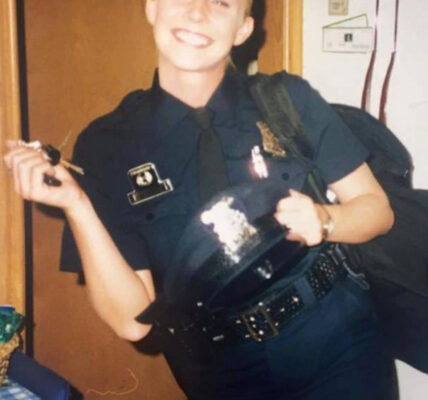On a warm afternoon in the turquoise waters off Big Pine Key, Florida, a group of paddle-boarders drifted leisurely across the ocean surface. The sun shimmered on the waves, the air was calm, and the moment felt ordinary—until something unusual caught their eyes.
A buoy from a crab trap bobbed erratically, tugging against the current. Curious, the group paddled closer. Beneath the buoy, the pale silhouette of a shark lay suspended in the water, its body eerily still.

The sight was unsettling: the shark was completely entangled in heavy fishing rope, wrapped tightly from its tail to its mouth. Its body hung upside down, lifeless and vulnerable.
For most, the scene might have sparked fear. But for 43-year-old photographer Charity Clark, instinct overrode hesitation. Without a second thought, she slipped off her paddleboard and into the water.
“I didn’t even think twice,” she said later. “I just saw an animal in distress and knew I had to help.”
Charity carefully lifted the shark, feeling the coarse tension of the rope cutting into its body. Yard after yard, she began uncoiling the thick line, working quickly but gently, her bare hands pulling away the trap that had nearly become its death sentence.
The shark didn’t fight back. Instead, it remained strangely motionless—a phenomenon marine biologists call tonic immobility, a natural, trance-like state that leaves a shark temporarily paralyzed when inverted. That moment of stillness gave Charity the chance she needed.

But as the final loops came free, the shark suddenly stirred. With a powerful twist of its body, it jolted to life, thrashing against the water and startling everyone nearby. Charity herself let out a scream—half shock, half exhilaration.
And then, in an instant, it was gone. The shark cut through the waves with fluid grace, free again.
Relief washed over the group as they cheered and watched the once-doomed creature swim away. For Charity, the moment was unforgettable.
“I was so relieved when it started moving,” she said. “We were all smiles, just watching it disappear back into the ocean. It felt like such a gift to see it alive and strong.”
What began as a casual paddle turned into an extraordinary act of courage—a reminder that compassion doesn’t always look gentle or easy. Sometimes, it means diving headfirst into fear to give another being a second chance at life.




